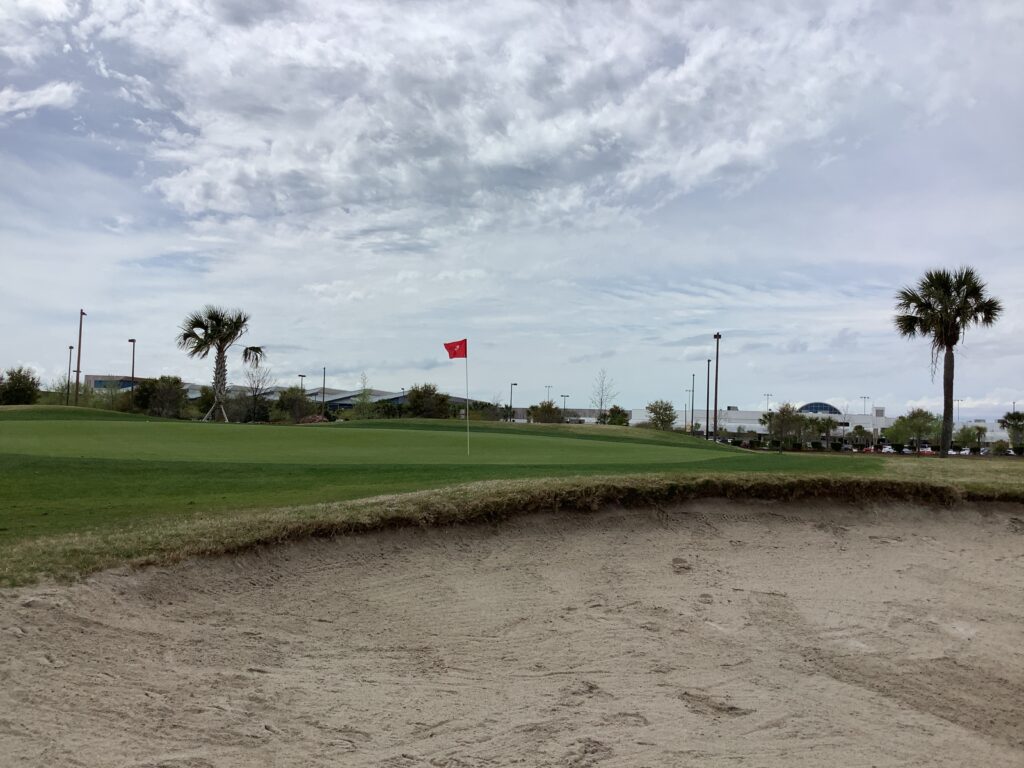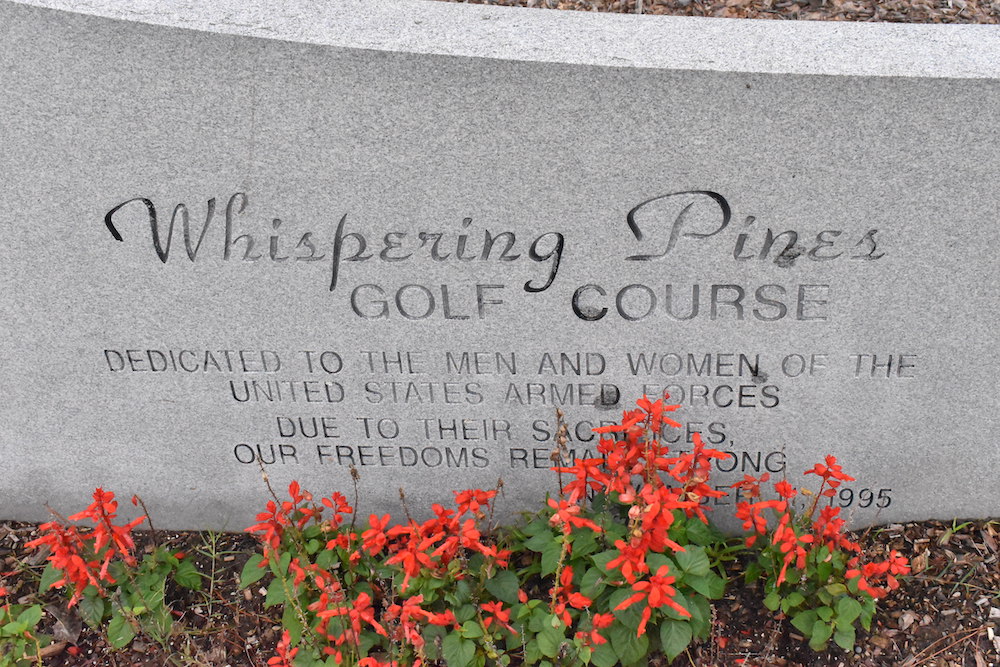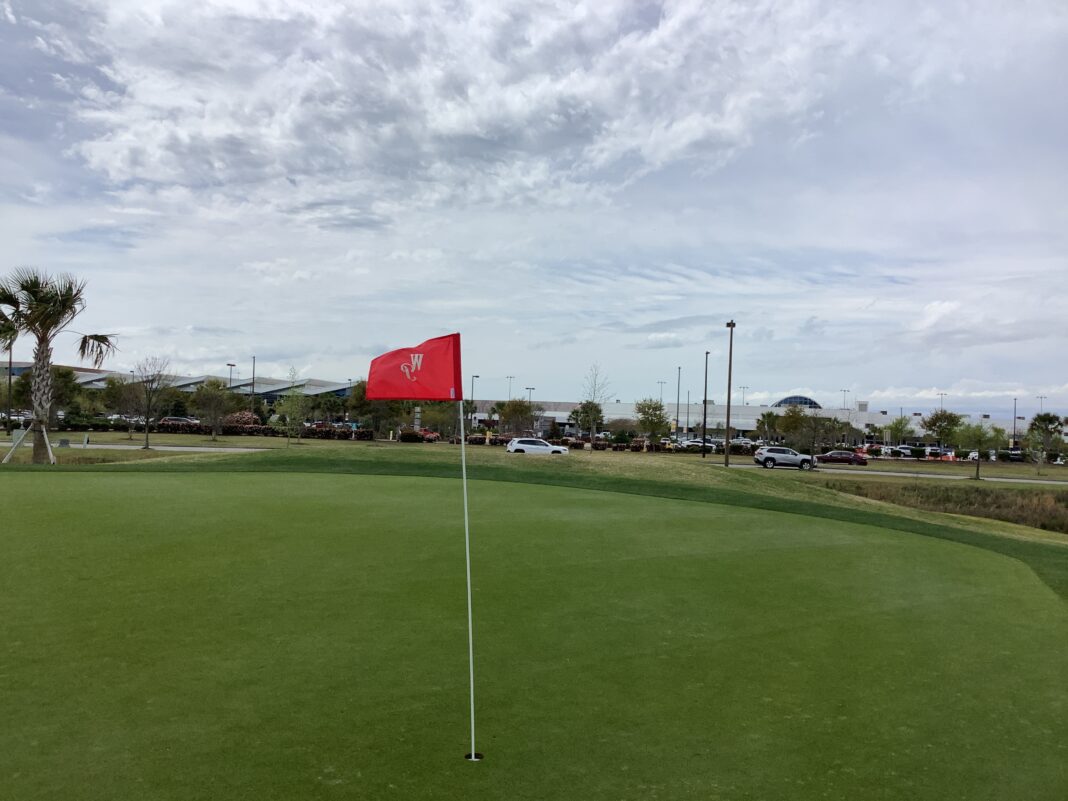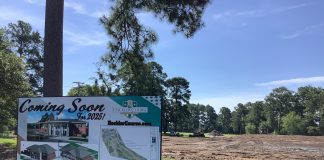Myrtle Beach City Council on Tuesday approved the spending of $1.45 million on a significant renovation project at Whispering Pines Golf Course.
The project proposed for 2025 would include new greens, bunker renovations, tree removal, parking lot repaving, and a new irrigation system.
Whispering Pines is owned by the city and is managed by Atlantic Golf Management, which is headed by former TPC of Myrtle Beach owner Chip Smith. Atlantic Golf began operating the course through what is designed to be a mutually beneficial agreement with the city in 2014.
Smith presented the renovation proposal at a city council workshop on Sept. 3 and the council gave its approval Tuesday during its monthly meeting to allocate hospitality tax money to fund it.
“It will be a whole lot better product,” Smith said.
The greens will be changed to Sunday ultradwarf Bermudagrass through a no-till method of regrassing. Green collars and surrounds will likely feature TifDwarf or Bimini Bermuda to create a buffer area to impede encroachment on the greens of fairway grass.
Trees will be removed in order to promote grass growth in heavily shaded areas. Bunkers that haven’t been rebuilt in recent years will be gutted and receive new sand and drainage.
The timeline for the repairs includes the irrigation replacement and tree removal this winter, and the course will close for the green and bunker renovations from late May to as late as Sept. 1.
“We’ve fought irrigation issues there from Day 1, so having a modernized irrigation system will really help control water flow and do a lot of things there,” Smith said.
The last regrassing of the greens came in the summer of 2002, when TifEagle Bermuda was installed.
Smith said the course has increasingly struggled to recover during transition periods to and from winter overseed grasses.
“If I cut my arm when I was 25 years old, it would be healed up in three days. If I cut it now it’s going to take three weeks. And those greens are in the same situation,” Smith said. “They just got to where it took a couple months to heal instead of a few weeks, just with age. It’s well past time.”
Some improvements have already been made in recent years totaling $357,000 in expenditures, Smith said, including some cart path repaving, bunker sand replacement, and window and HVAC replacements.
In his annual review last month of the course’s performance, Smith said Whispering Pines played a whopping 56,700 rounds in fiscal year 2023-24 and collected more than $2.46 million in revenue, with the city receiving a payment of $156,548 for 2023-24. The rounds and revenue were up slightly from the previous year.
Smith said that in 2014 that the course played approximately 28,000
rounds and generated $750,000.00 in revenue, and that since 2016 the city has received more than $1.07 million in payments from the course’s operation.
Smith’s report says locals account for 71% of the rounds played at Whispering Pines, and non-locals pay between $13 and $30 more per round.

A product of the military
Whispering Pines is a product of the U.S. Air Force.
Nine holes of Whispering Pines were built in 1962 by military personnel on the former Myrtle Beach Air Force Base. In 1986, the Texas design firm of Finger, Dye and Spann added nine holes and renovated the previous nine, creating the nearly 6,800-yard, par-72 course that exists today.
The city began leasing the course through the military on an annual basis in April 1993. The Air Force couldn’t release it to the National Parks Service, which handles the Federal Lands to Parks Program for the U.S. Department of the Interior, until it cleaned up dumps and pollution on the property.
The city received permission to operate the course in September 1993, and it reopened in November ’93 after extensive work was completed. Course officials borrowed a total of more than $600,000 from the city within the first couple years to refurbish the property.
Initial improvements included new cart paths, course maintenance equipment, a maintenance building, a fuel facility and fuel dispensing system, and new sewer and water pump systems.

The city of Myrtle Beach finally claimed the property in September 2001 from the Department of the Interior through a quitclaim deed.
The deed specifies restrictions on the property’s use.
If the city doesn’t use it for recreation, such as athletic fields, tennis courts, a campground, nature park, etc., thereby breaching the deed agreement, it reverts back to the Department of the Interior. And if the city wants to change how the property is being used, it has to explain itself in writing to the department and receive approval.
In 2014, with the course operating in the red, bids were accepted by the city to manage the course, and Atlantic Golf Management was selected.
Atlantic also manages the nearby par-3 Aero Club Short Course through a lease agreement with Horry County and the airport, and formerly managed Brunswick Plantation & Golf Resort and Cape Fear National Golf Course in Brunswick County, N.C., before Smith’s ownership group sold those properties to Heritage Golf Group in 2022.










